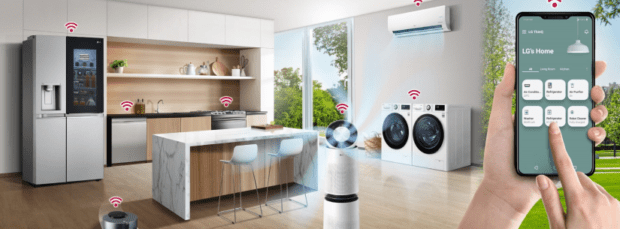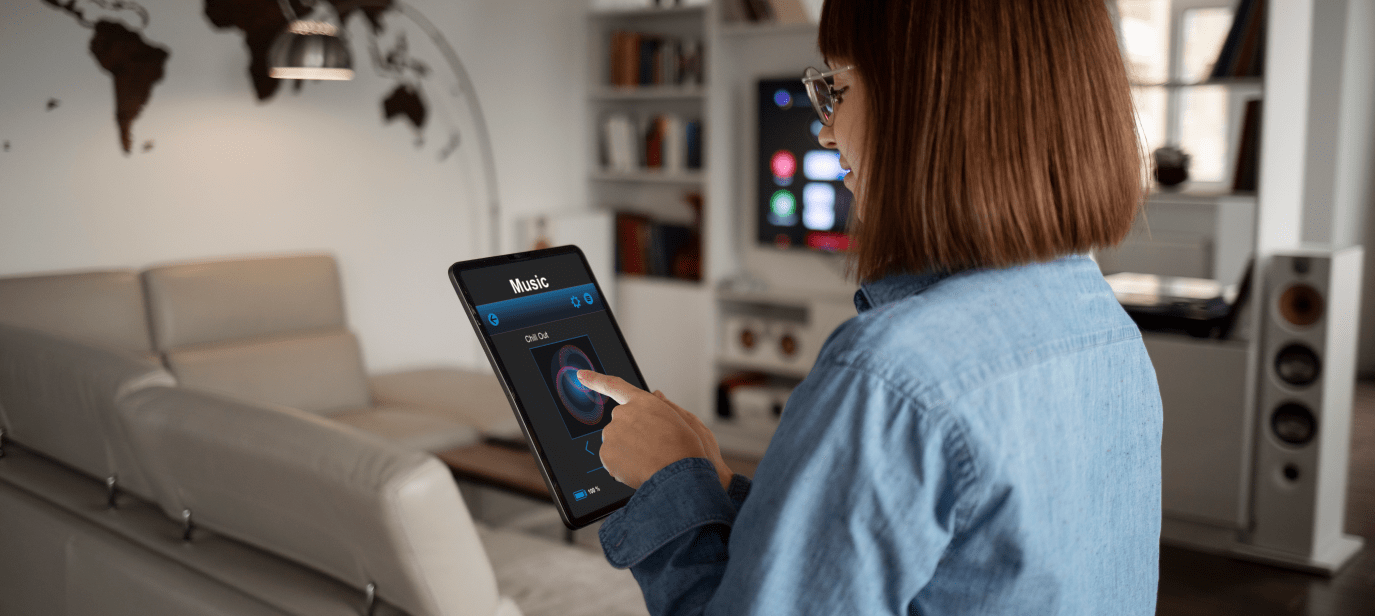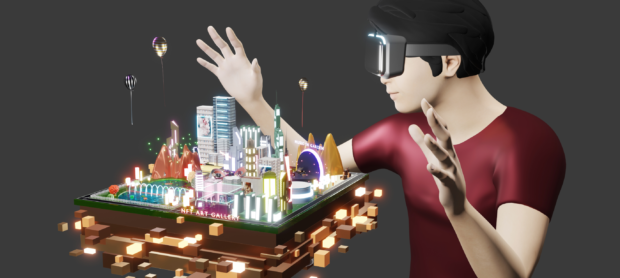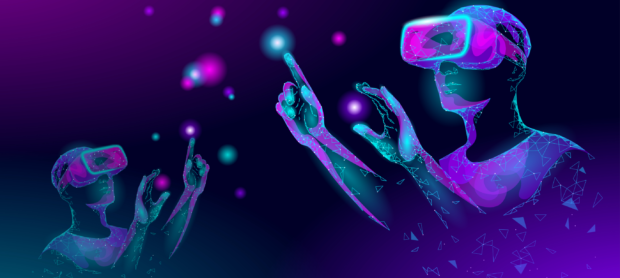In an era of technological innovation, the Internet of Things (IoT) has emerged as a groundbreaking force, propelling a monumental transformation in our daily routines, work habits, and leisure pursuits. Central to this metamorphosis is the notion of intelligent abodes, harnessing the power of IoT to forge living spaces that are increasingly connected, resourceful, and attuned to our requirements.
IoT, an intricate web of interlinked gadgets, detectors, and systems, establishes seamless communication through the internet, facilitating the exchange of data and enabling remote supervision. Smart homes, once regarded as the province of science fiction, have now materialized, thanks to the accelerated evolution of IoT technology. These interconnected habitats strive to streamline our existence by automating mundane chores, enhancing domestic security, and fine-tuning energy utilization.
With an insatiable appetite for ever-smarter, increasingly efficient dwellings, IoT has surfaced as the pivotal catalyst propelling these ambitions into reality. Incorporating IoT contraptions within our domiciles empowers us not only to remotely regulate diverse aspects of our living milieu but also allows these mechanisms to glean insights from our behavioral patterns and predilections. Consequently, our residences are morphing into adaptive, perceptive entities that calibrate their conduct to accommodate our distinctive ways of life.
Since its beginnings, the idea of IoT and smart houses have advanced significantly. Early on, modest remote-controlled appliances and inexpensive security systems were the extents of home automation. But when IoT technology matured, it cleared the path for a seamless connection, cutting-edge sensors, and sophisticated data analysis, completely altering the field of home automation.
The proliferation of inexpensive, energy-efficient gadgets, improved internet access, and rising consumer demand for comfort, security, and convenience have all led to the expansion of IoT in smart homes. Additionally, the development of artificial intelligence (AI) and machine learning has improved IoT device capabilities by allowing them to adapt to and learn from user preferences and habits.

There are many advantages of incorporating the Internet of Things into home automation, including:
- Better monitoring and control of energy use is made possible by IoT devices, which reduces consumption and lowers costs.
- Security enhancement: IoT-enabled security systems provide cutting-edge capabilities like remote monitoring, intrusion detection, and real-time warnings, guaranteeing a safer home environment.
- User experiences that are specifically designed: IoT technology enables personalised automation based on personal preferences and routines, creating a unique and pleasant living environment.
- Enhanced convenience: The Internet of Things (IoT) streamlines everyday routines and improves the convenience of our lives by automating and improving many areas of our houses.
- Reduced energy use and carbon footprint: IoT helps to promote a more sustainable and environmentally friendly way of living via smart technologies and effective energy management.
- Shaping the future of pleasant and sustainable living: As IoT trends develop, this technology will be essential to determining the direction of smart homes and improving the standard of life.
Top IoT Trends for Smart Homes
Integration of cutting-edge AI and machine learning
IoT devices in smart homes are now capable of customized automation, adapting experiences to specific tastes and requirements. This is made possible by embracing the power of artificial intelligence (AI) and machine learning. Predictive maintenance is made possible by these technologies, enabling equipment to identify prospective problems and plan fixes before they become more serious. Additionally, the integration of AI and machine learning has improved security by enabling intelligent systems to recognize anomalous activities and send out immediate notifications.
Management of Energy and Sustainability
Energy management and environmental initiatives in smart homes are being driven by IoT technology. While solar energy integration and smart grid technologies enable smooth coordination between energy production and consumption, they also aid in optimizing energy use. Water waste is reduced via IoT-enabled water conservation technologies like smart irrigation systems and leak monitoring tools, which promote more sustainable living.
Talking devices and smart home hubs
The way we engage with our smart homes has been completely transformed by the development of voice assistants. These AI-powered virtual assistants provide hands-free control and cross-platform interoperability while giving different IoT devices a single user experience. Improved privacy and security safeguards are being added as voice assistants continue to develop to guarantee that user data is kept safe.
Emerging IoT Technologies for Smart Homes
1. Robotics and Automation
In the ever-evolving world of robotics and automation, burgeoning advancements persistently infiltrate our abodes, transforming them into truly intelligent domiciles. Picture this: diminutive robots dexterously navigating domestic terrain, liberating homeowners from the banal monotony of menial chores such as vacuuming and lawn care, enabling them to invest their precious time in more meaningful pursuits.
2. Intelligent Habitats and Harmonious Interplay
The landscape of contemporary smart homes is becoming increasingly intricate, as the emphasis shifts toward a harmonious interplay amongst a plethora of IoT contraptions and frameworks. This unblemished synergy engenders a profoundly interconnected milieu, wherein diverse gadgets seamlessly exchange information, thereby optimizing functionality and elevating user experience to unprecedented heights.
3. A Confluence of Augmented Reality (AR) and Virtual Reality (VR)
Merging AR and VR technologies with the realm of smart homes heralds a new frontier in immersive experiences and elevated interaction with IoT apparatuses. Envision virtually traversing your dwelling, or manipulating intuitive control interfaces with ease—these technological marvels are poised to redefine our interactions with the very spaces we inhabit.
4. Vigilance in Health and Well-being
The IoT universe is steadily carving out a significant niche in health and wellness monitoring within the smart home sphere. Consider the myriad of devices at our disposal: air quality sentinels, wearable fitness companions, and more. These cutting-edge innovations empower individuals to remain vigilant of their well-being, garner tailored guidance, and cultivate healthful lifestyles. As the clamor for wellness-centric solutions intensifies, we eagerly anticipate the unveiling of even more ingenious IoT applications in this domain.

Challenges and Concerns
Data Security and Privacy
While IoT devices have many advantages for smart homes, they also present issues with data security and privacy. It is crucial to secure user data from unwanted access and future cyberattacks since these devices gather and communicate sensitive information. To retain user confidence and protect privacy, manufacturers and service providers must emphasize effective encryption techniques and security measures.
Normativity and Interoperability
Interoperability and standards issues are presented by the IoT landscape’s fast expansion. A common framework that facilitates smooth integration and communication across various IoT systems is essential due to the wide variety of devices, platforms, and communication protocols. The creation of universal standards and industry-wide cooperation will be essential for the development of a genuinely interconnected smart home environment.
Accessibility and Affordability
Even while IoT technology has gotten more inexpensive in recent years, many users may still find it too expensive to build an extensive smart home system. To encourage mass use and democratize the advantages of smart home technology, it is crucial to make sure that IoT devices and services are available and cheap to a larger audience. To overcome this obstacle and make smart homes a reality for everyone, continued innovation and the development of affordable solutions are required.
The Future of IoT in Smart Homes
In the rapidly evolving world of smart homes, IoT technology undeniably holds the keys to the kingdom. It is, without a doubt, the driving force behind home automation’s continuous metamorphosis, pushing the envelope and redefining what is possible. By weaving together AI, machine learning, and cutting-edge communication methodologies, IoT devices are poised to become even smarter, more adaptive, and impressively responsive. As a result, user experiences will be taken to new heights, replete with unprecedented personalization.
As the gears of IoT’s evolution keep turning, we’re on the cusp of witnessing a cornucopia of groundbreaking innovations within the smart home sphere. Picture advanced sensor networks that seamlessly intertwine, human-centric lighting systems that cater to our circadian rhythms, and state-of-the-art security measures that vigilantly safeguard our sanctuaries. Furthermore, the confluence of burgeoning technologies, such as blockchain, edge computing, and quantum computing, may well unlock doors to heretofore unimagined possibilities, expanding the horizons of IoT devices’ capabilities.
The ramifications of IoT’s foray into smart homes are far-reaching, impacting homeowners, businesses, and society in manifold ways. Homeowners will bask in living spaces that are not only more comfortable and secure but also remarkably energy-efficient. Companies immersed in the creation, production, and distribution of IoT devices and services must stay nimble to seize burgeoning market opportunities. Moreover, IoT’s proliferation promises to catalyze sustainable living practices, curb energy consumption, and foster interconnected communities, ultimately cultivating a more affluent and harmonious society.

Final thoughts
In this article, we looked at the most recent IoT developments and how they relate to smart homes. We also looked at developing technologies, enhanced AI integration, energy management, and voice assistants. Homeowners may benefit from increased security, convenience, and sustainability thanks to these developments, which are changing home automation. Keeping up with these advances is crucial for making educated choices regarding home automation and energy management, as IoT continues to define the future of smart homes.
Our highly skilled professional team at Eventyr is prepared to assist you in realizing your idea for a smart home. We are committed to offering you the knowledge and assistance you need to build a genuinely connected and intelligent living environment, since we are familiar with the complexities of IoT technology. Contact us if you’d like more details about our offerings and how we can help you use the Internet of Things to power your smart home. Check out our related project. Together, let’s make your house the pinnacle of convenience, effectiveness, and innovation.




